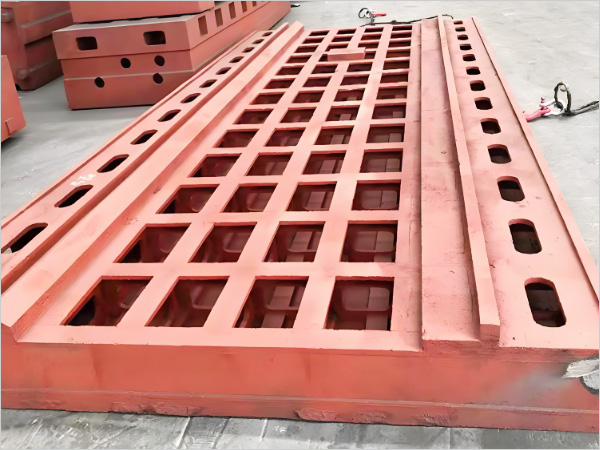CNC Machine Tool Base CastingPayment Method For CNC Machine Bed Castings And Cast Iron Bases: 30% Deposit In Advance, Production And Processing Arranged, And The Final Payment To Be Paid After Production And Inspection Are Completed And There Are No Problems. Our Company's CNC Lathe Bed Castings Are Cast According To The HT300 Standard, Strictly Following Element Content Control And Tensile Testing. For Decades, We Have Been Providing Customers With Qualified Bed Castings.
The Base Of A CNC Machine Tool, Also Known As The Bed Of A CNC Machine Tool, Is The Carrier Of Machine Tool Components. The Quality Directly Affects The Mechanical Properties Such As Precision And Stiffness Of The Machine Tool, And Requires Secondary Tempering To Remove Residual Stress, Achieving The Ten-year Accuracy Unchanged Index In Europe And America. Our Company Strictly Follows The Casting Process Of Machine Tool Castings, And Strictly Controls Every Environment To Ensure The Factory Delivery Of Castings, Providing Customers With Peace Of Mind.
The Influence Of Wall Thickness On Defects In CNC Machine Bed Castings. The Internal Ribs Or Walls Of The Castings Have Poorer Heat Dissipation Conditions And Slower Cooling Rates Than The Outer Walls. To Prevent Grain Coarsening And Internal Stress On The Inner Wall, The Thickness Of The Inner Wall Of The Bed Frame Casting Should Generally Be Smaller Than That Of The Outer Wall. If The Wall Thickness Of Each Part Of The Casting Differs Too Much, Metal Will Accumulate Locally At The Thick Wall, Forming Hot Spots. During Solidification Shrinkage, Defects Such As Shrinkage Holes And Porosity Are Easily Formed At The Hot Spots. In Addition, The Different Cooling Rates Of Each Part Can Easily Lead To Thermal Stress, Resulting In Cracks At The Connection Between The Thin-walled And Thick Walled Parts Of The Casting. Therefore, When Designing Castings, The Wall Thickness Should Be Made As Uniform As Possible To Prevent The Above-mentioned Defects From Occurring. The Acceptance Criteria For CNC Machine Tool Base Castings, CNC Machine Tool Bed Body Castings, And Cast Iron Base Castings Are As Follows:
The Acceptance Criteria For Bed Frame Castings Are Determined According To Customer Requirements. Generally, The Following Items Are: 1) Chemical Composition Standards For Bed Castings; 2) The Mechanical Performance Standards For Castings Include Tensile Strength And Hardness, Such As Ht250_, Which Requires A Tensile Strength Of 250N/CM3 Or Higher,; 3) Metallographic Standards For Castings, Including Carbide Content, Pearlite Content, Graphite Length, Etc; 4) Dimensional Requirements For Castings; 5) Performance Requirements For Castings, Such As Compression, Leakage, Etc.




